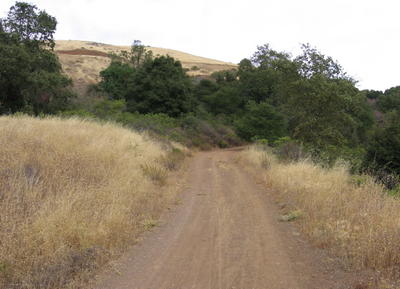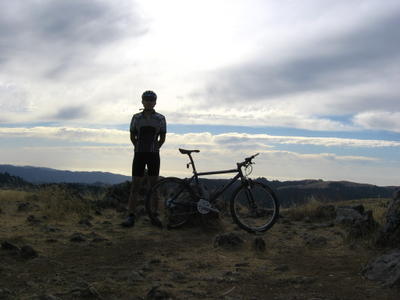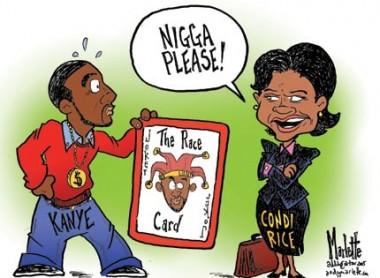A news article excerpt from
The Boston Globe:
'It was so eerie watching ourselves. . . . It was unimaginable'By Jill Leovy,
Los Angeles Times | September, 2005
LOS ANGELES -- For Matthew Ash, a 24-year-old on a church trip to New York's Catskill Mountains, the first sign of trouble came from a cartoon JetBlue plane.
The plane -- on the animated map at his seat -- ''wasn't going anywhere," he said, ''just hanging around in Los Angeles."
A few minutes later, he heard the calm male voice of Flight 292's pilot speaking over the plane's intercom: ''For those of you who may have noticed we are flying in circles," Ash recalled the pilot saying, ''we are currently experiencing difficulties with the front landing gear."
The landing gear had not retracted, the pilot said. A young woman turned to Ash nervously: ''So what does that mean?" she asked.
A second announcement followed: The wheel was crooked.
After that, the situation took an abrupt, bizarre turn.
JetBlue flights are equipped with small television sets on the back of each seat. As passengers watched, live MSNBC news and Fox News began to show their airplane. Ash glanced at the television of the passenger next to him: ''At first I just thought, 'Of course, Fox News,' " he said, discounting the story as sensationalized. ''But then it was on MSNBC."
People started to worry. ''It was so eerie watching ourselves," Ash said. ''It was unimaginable. . . . We heard people speculating about this and that. It was so odd."
Somehow, being on the TV news, ''made it a big deal."
Passengers reacted with a range of emotions -- some quietly upset, but most very calm. A few began laughing. Ash joined them. Once he saw the humor of it, the sense wouldn't leave him: ''It was just such an absurd situation," he said.
But his humor faded as he listened to television commentators. ''One guy was saying, 'You know, I'm just speculating, but the landing gear will break off, and the nose will drive into the pavement. . . .' "
(
Source)
Life imitating art. The article reminded me of an excellent book by the contemporary author, Don Delillo,
White Noise. The book pokes fun at postmodern civilization, its inherent moral bankruptcy, the substitution of consumerism for spirituality or religion, and the masses enslaved to the media (e.g. TV).
In one chapter, the narrator unexpectedly discovers footage of his wife, Babette on TV:
I gave Murray his coffee and was about to leave the when I glanced in passing at the TV screen. I paused at the door, looked more closely this time. It was true, it was there. I hissed at the others for silence and they swiveled their heads in my direction, baffled and annoyed. Then they followed my gaze to the sturdy TV at the end of the bed.
The face on the screen was Babette's. Out of our mouths came a silence as wary and deep as an animal growl. Confusion, fear, astonishment spilled from our faces. What did it mean? What was she doing there, in black and white, framed in formal borders. Was she dead, missing, disembodied? Was this her spirit, her secret self, some two dimensional facsimile released by the power of technology, set free to glide through wavebands, through energy levels, pausing to say goodbye to us from the fluorescent screen?
A strangeness gripped me, a sense of psychic disorientation. It was her all right, the face, the hair, the way she blinks in rapid twos and threes. I'd seen her just an hour ago, eating eggs, but her appearance on the screen made me think of her as some distant figure from the past, some ex-wife and absent mother, a walker in the midst of the dead. If she was not dead, was I? A two-syllable infantile cry, ba-ba, issued from the depths of my soul.
All this compressed in seconds. It was only as time drew on, normalized itself, returned to us a sense of our surroundings, the room, the house, the reality in which the TV set stood--it was only then that we understood what was going on.
Babette was teaching her class in the church basement and it was being televised by a local cable station. Either she hadn't known there would be a camera on hand or she preferred not to tell us, out of embarrassment, love, superstition, whatever causes a person to wish to withhold her image from those who know her.Mass media, it would seem, has become the test of authenticity in our lives. In a crash landing in
White Noise, upon observing the rattled passengers "dragging their shoulder bags and garment bags across the dusty floor" at Iron City airport, Babette asks her husband, "Where's the media? And when he replies, "There is no media in Iron City," she exclaims in astonishment, "They went through all that for nothing?"
One constant theme that echoes throughout the novel is the question of "Who would die first?" This spawns other, equally dark--and hilarious--quotes. For example, "We seem to believe it is possible to ward off death by following the rules of good grooming."
The description of the supermarket (and, by extension, malls) is brilliant:
Tibetans believe there is a transitional state between death and rebirth. Death is a waiting period, basically. Soon a fresh womb will receive the soul. In the meantime the soul restores to itself some of the divinity lost at birth. . . . That is what I think of whenever I come in here. This place recharges us spiritually, it prepares us, it's a gateway or path. Look how bright. It's full of psychic data. . . .
Everything is concealed in symbolism, hidden by veils of mystery and layers of cultural material. But it is psychic data, absolutely. The large doors slide open, they close unbidden. Energy waves, incident radiation. All the letters and numbers are here, all the colors of the spectrum, all the voices and sounds, all the code words and ceremonial phrases. It is just a question of deciphering, rearranging, peeling off the layers of unspeakability. Not that we would want to, not that any useful purpose would be served. This is not Tibet. Even Tibet is not Tibet anymore. . . .
Tibetans try to see death for what it is. It is the end of attachment to things. This simple truth is hard to fathom. But once we stop denying death, we can proceed calmly to die and then go on to experience rebirth or Judeo-Christian afterlife or out-of-body experience or a trip on a UFO or whatever we wish to call it. We can do so with clear vision, without awe or terror. We don't have to cling to life artificially, or to death for that matter. We simply walk towards the sliding doors. Waves and radiation. Look how well-lighted everything is. The place is sealed off, self-contained. It is timeless. Another reason why I think of Tibet. Dying is an art in Tibet. A priest walks in, sits down, tells the weeping relatives to get out and has the room sealed. Doors, windows sealed. He has serious business to see to. Chants, numerology, horoscopes, recitations. Here we don't die, we shop. But the difference is less marked than you think.Read this article and decided to quote it in its entirety since the
Los Angeles Times restricts non-subscriber access to its archives after a period of time.
Hemmed in by the thin green linePerhaps nowhere more than in Los Angeles, money, or the lack of it, determines not just where we live but who our friends are.
By Sean Mitchell, Special to The Times
Maybe he went to UCLA, and you went to USC; maybe she lives on the Westside and you live in the Valley; maybe he's an evangelical Christian and you're Jewish; maybe she speaks Chinese and you speak Spanish; maybe he likes classical music and you like Nine Inch Nails. In this life there are many obstacles to friendship, but the one that people really would rather not talk about, the one that is not fit for polite conversation, is: money.
Money, as in, he has more than you do, or she has less than you do. As in, their kids go to private school and yours don't. Or you vacation in the South of France and they go to Disneyland. As in, they seemed so nice and interesting when you met them at the party, but how are you going to be friends with people who live "over there"?
Not that anyone would say such a thing out loud. Some would not even admit it to themselves. But it doesn't have to be stated because it is simply understood: The great unequalizer in our society is the size of our disposable income and the lifestyle it affords or denies. Rita Coolidge used to sing a song with a chorus that went, "You know who your friends are by looking in their eyes," but a more realistic lyric might be, "You know who your friends are by looking at their cars."
While there exists among us a small number of admirably selfless souls who devote their lives to faith and charity, most of us are defined socially by our bank accounts and what they can buy. Even if we profess not to love money or pursue it above all else, its symbolism and nagging corollary, envy, are hard to ignore — and perhaps nowhere more so than in Los Angeles, where a Hollywood break or real estate investment can separate friends overnight both literally (from Montebello to Malibu, say) and figuratively.
When a friend is blessed with good fortune and suddenly leaps to a higher tax bracket or leaves the neighborhood to climb the hills, something has happened that's hard to ignore. Both sides might wish or believe that nothing has changed between them, but the world says otherwise. "It can't stay the same when one of you enters into the Hollywood class thing," says a friend who remains a salaried employee. "When you do, you live your life in a different way."
But what is friendship based on, if money can alter it so quickly?
Aristotle, writing 2,500 years ago, said there were three kinds of friendship: 1) friendship based on pleasure (golfing partners, book group members); 2) friendship based on utility (neighbors, business contacts); and 3) friendship based on two people honoring each other's virtue. The last, he said, is the most important and enduring kind of friendship, outlasting quarrels and misunderstandings. He didn't say if it would outlast one friend landing a series on HBO while the other gets by on cost-of-living raises every three years.
Arvid Straube, pastor of the First Unitarian Universalist Church of San Diego, believes money doesn't have to rule our lives. "All of us to some degree are driven by our culture's materialism," says Straube, who has delivered sermons on this topic. "But people can choose to have it be less important. It's a theological question of idolatry. Are you worshiping the wrong thing? Where your treasure is, that's where your heart will be. A lot of people don't know where their heart is."
As citizens of a majority Christian nation, Americans have reason to be confused about the symbolism of money because of its contradictory religious interpretations in our culture. On the one hand, Jesus said, "You cannot be the servant of both God and money," but the Protestants who settled the colonies and frontier supplanted that observation with the belief that hard-earned earthly rewards were evidence of spiritual well-being. Whether they would have included the late 19th century robber barons or Donald Trump in that credo is another matter.
Jacob Needleman, a professor of philosophy at San Francisco State University and the author of the 1991 book "Money and the Meaning of Life," says, "Money tells us what's real. It's the fundamental means of measuring our worth. It's the one thing by which we organize our lives, and it can buy everything except meaning."
Some might argue that money is meaning, for example, Gordon Gekko, the ruthless stock trader played by Michael Douglas in Oliver Stone's film "Wall Street," who famously said, "Greed — for lack of a better word — is good. Greed is right. Greed works," providing a cold mantra for the 1980s.
How much is enough?IT'S hard to forget that we live in the city where the terms "A list" and "B list" were invented to identify the relative luster of friends, acquaintances and celebrities based on their current wattage in the Hollywood firmament — apparently answering a need to measure friends on the basis of their material clout and status.
"I think envy in L.A. is extreme," says a friend married to a successful television writer. "The stakes are so high. You always feel like life is going on, on another plane above you, where everything is more exciting, if you could just get there."
The level of success that has put her and her husband in the occasional company of leading Hollywood stars has left her feeling only inferior. "When I've been in one of their gigantic houses, I come home feeling diminished. How can you be friends with someone who makes you feel that way?"
In L.A., schools can be the great divide. You're either a public school person or a private school person, and good luck crossing the line.
"I never felt like keeping up with the Joneses until I had a kid," says a woman I know in Santa Monica who moved her third-grader from public to private school. "But I wanted her to have every opportunity to compete in this super-competitive world." The neighbors, she says, never forgave her for leaving the public school.
Education is indeed a class marker, but it's complicated. Because of scholarship programs, college (and private high school) classrooms and athletic fields are often money-blind, and friendships develop among students of disparate economic backgrounds behind ivy-covered walls. But those friendships are not so easily maintained after graduation unless the friends are able to achieve comparable levels of income, live in the same neighborhoods, belong to the same athletic clubs, take similar vacations and buy the same consumer products. This is not what we were taught in social studies class, but it tends to be the way things work out.
You might still speak to a former classmate who's ascended to riches beyond your reach, but underlying the conversation will be the unspoken truth that you now live on different economic planets.
An imbalance in wealth can even affect the relationships within a family. An artist friend tells of how he was close to his brother-in-law when the relative was a struggling law student. But after the brother-in-law became a lawyer and began to amass a fortune in investments, things changed. "Whenever we would visit him in New York, he insisted on paying for everything," my friend explained. "I used to try to pay half the check at a restaurant, but he wouldn't allow it, saying, 'Look, I'm wealthy. This is nothing for me. Let me take care of it.' So eventually I stopped trying to contribute and just resigned myself to feeling like a wimp whenever I'm around him."
Stress can be felt on the other side of the unequal equation as well. A successful New Yorker I know (let's call him Ted) tells the story of how his oldest and closest friendship was seriously damaged by a misunderstanding sparked by unequal economic status. His friend (let's call him Bill) had waited longer after college to find steady employment, had married later and, by the time he and his wife had kids, was still struggling financially. Ted, continuing a tradition that had benefited him and his wife when their children were born a few years earlier, began passing on clothing his kids had outgrown to Bill and his wife, believing this to be a practical and loving gesture.
"One afternoon," Ted says, "I learned the painful lesson that Bill's perception differed from mine. In a catch-up telephone call, I asked — innocently, I thought — if they'd received our latest gift carton, as we hadn't had any acknowledgment of it from them. Bill got very angry and accused me of lording it over them and, perhaps not in so many words, of demanding humiliating shows of gratitude. Very quickly his wife joined in on another telephone; it was as if a tap had been opened and all this rage just poured out from them."
Attitude, not amount SO do we just accept that we are all, on both sides of the divide, social prisoners of money and its influence?
"It's not so much money as your attitude toward money," says an old college friend who has raised three children in a pleasant suburb of Washington, D.C., working as a government attorney. His wife is a schoolteacher. They live well but far from the pages of Town and Country. Through the years we have spoken about the paths not taken and career ladders not climbed.
Once, when he was working for the Department of Energy, he explained to me that many of his colleagues were only biding their time there, learning the fine print of energy regulation so they could get much higher-paying jobs with law firms representing big oil companies being sued by the government. He didn't feel he could do that and decided to settle for a more modest income, which also consigned him to lower social status in D.C. It was a defining moment in his life.
"Your friends are going to be people who share your values," he says, "and being motivated mainly by money is a pretty significant value."
It's quite possible that a friend who has achieved affluence does not believe he has placed money at the top of his value set. But real estate has a way of speaking on our behalf — perhaps nowhere more so than in Los Angeles, where choosing the location and size of your house can be a defining act.
Once I was invited to a former neighbor's housewarming in what could only be described as a mansion. Struck by the grandeur and aspiration on view, I didn't know what to say other than "Where do the servants sleep?" It was uncomfortable just being there, reckoning with the chasm that now separated our lives.
It was as if our pleasant acquaintance had never been tested until now, when one of us suddenly had a lot more power than the other in the material world. The seesaw had tipped, and I was looking up from the ground. I tried not to make too much of the moment, tried not to pass judgment on the display of wealth, because it's all relative, is it not? A union-wage carpenter living in a two-bedroom bungalow in Fontana is rich compared with an illegal immigrant living 12 to a room in a Pico-Union apartment. We are what we are and have what we have.
Whether I disapproved of my friend's mansion or secretly envied it, the result was the same. The house — and all it implied — was bigger than both of us. We would not talk about it any more than we would ask each other if we were happily married or when each of us expected to die. Some things are left unsaid while the culture speaks for us, sending the message that friends don't let friends make less money than they do.
(
Source)
The herd/sheep mentality of people never fail to astonish me. In their chronic insecurity to
belong, they will partake in any activity, no matter how asinine, illogical, self-destructive, or just plain cruel or evil. Whenever I read about or encounter such people, I carry away with me one impression and one impression only: hollowness. They lack conviction in their lives. There exists no central pillar of faith or a fundamental belief, in themselves or beyond themselves. All that matters is that they do not get left behind. Not be alone. Because, they know, in such moments, they have to face the terrible emptiness that defines them.
Another quote from
White Noise:
Crowds came to form a shield against their own dying. To become a crowd is to keep out death. To break off from a crowd is to risk death as an individual. Crowds came for this reason above all others. They were there to be a crowd.Every thought about the terrifying power of the phrase, "dying alone"?
And so, the followers ape what the crowd espouse. If it is the fashionable and "in" thing to wear leather boots or jackets in 80 F weather, they do it; if it is fashionable to drive a 5000 pound SUV even though they possess no experience driving what-is-essentially-a-truck, they do it (and rollover on freeway exit ramps and die). Tomorrow, if the crowd decides that setting puppies on fire is considered bling bling, you can be sure they will do it. Before anyone accuses me of being an alarmist with the puppy example, take a good look at what the fashion industry and J. Lo have been involved in: a previous post on
how animals are skinned alive. I hope you are eating when you watch that video.
And what is this about trying to "out-consume" each other? Oh, he has a bigger car. Oh, her husband has a bigger house. Does it really matter? Do you call each other on the cellphone and say, "Hey, guess what? I used one more sheet of toilet paper than you when I wiped my ass today! I'm the man!"
What the Hell is wrong with you?
Will anyone care in a couple of weeks? Months? Years? You think that, generations from now, people will go, "Oh, check out this plaque, it said, Mr. So-and-so drove a fancy car, wore fancy clothes, and used 1/2 a roll of TP to wipe his ass after each trip to the restroom. What a man!"
I don't think so.
I will let Percy Bysshe Shelley have the last word on this:
OzymandiasI met a traveller from an antique land,
Who said--"Two vast and trunkless legs of stone
Stand in the desart....Near them, on the sand,
Half sunk a shattered visage lies, whose frown,
And wrinkled lip, and sneer of cold command,
Tell that its sculptor well those passions read
Which yet survive, stamped on these lifeless things,
The hand that mocked them, and the heart that fed;
And on the pedestal, these words appear:
My name is Ozymandias, King of Kings,
Look on my Works, ye Mighty, and despair!
Nothing beside remains. Round the decay
Of that colossal Wreck, boundless and bare
The lone and level sands stretch far away."
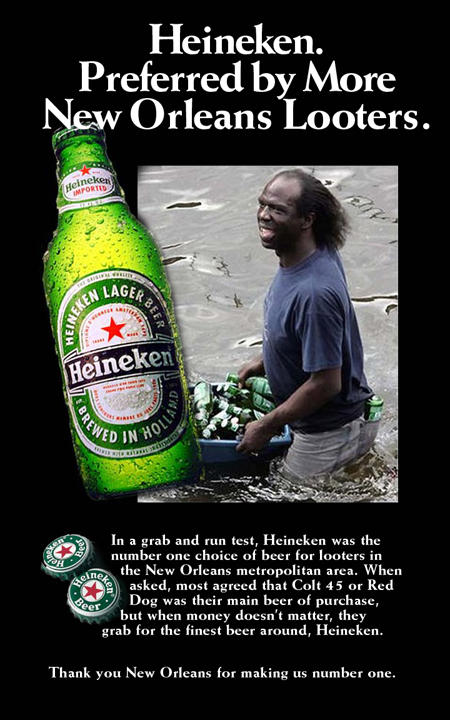
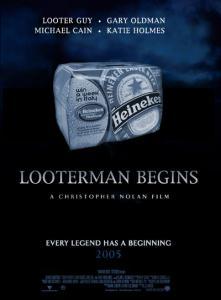
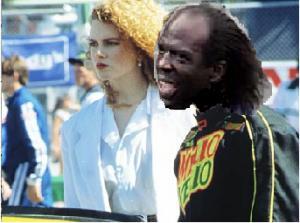 Days of Looting
Days of Looting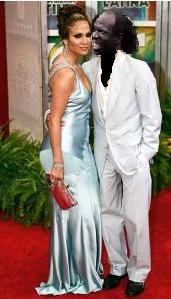 J. Lo and Looterman.
J. Lo and Looterman.









